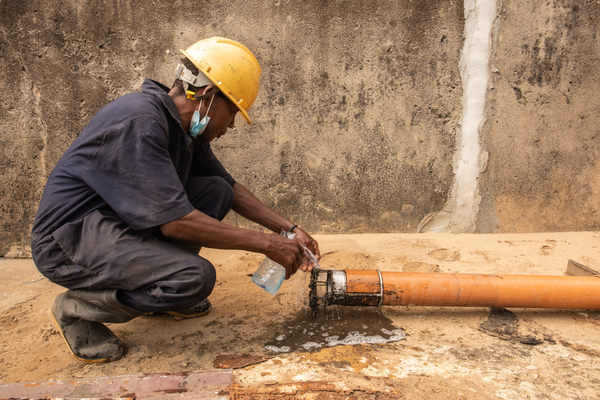Sanitation workers are involved in several steps of the faecal waste management chain, including emptying of pits and septic tanks; cleaning toilets, sewers, and manholes; and operating pumping stations and treatment plants. They provide a fundamental public service, yet often face extreme health hazards and safety risks on the job, as well as social discrimination and stigma.
Sanitation workers' rights have gained attention due to the need to scale up sanitation services and interrelated occupational hazards and health issues, becoming a crucial discussion point in achieving SDG6.
The Sanitation Workers Knowledge and Learning Hub serves as the platform for the dissemination and exchange of resources and information regarding sanitation workers. It comprises a library of publications, research, reports and other resources, as well as blog posts.
The Sanitation Workers Knowledge and Learning Hub platform is supported by the Initiative for Sanitation Workers, a global alliance driving action on sanitation workers. Formed in 2020 by the International Labour Organisation, WaterAid, World Bank, World Health Organisation, and SNV Netherlands Development Organisation, its current membership also includes the Pan-African Association of Sanitation Actors, Practical Action Bangladesh, Indian Institute for Human Settlements, Center for Law and Justice in Pakistan, Public Services International, The Association of Uganda Emptiers Limited, Association of Manual Emptiers of Burkina Faso and the MATOPASI Association of Tanzania.
The hub is hosted by the Sustainable Sanitation Alliance (SuSanA) platform.

